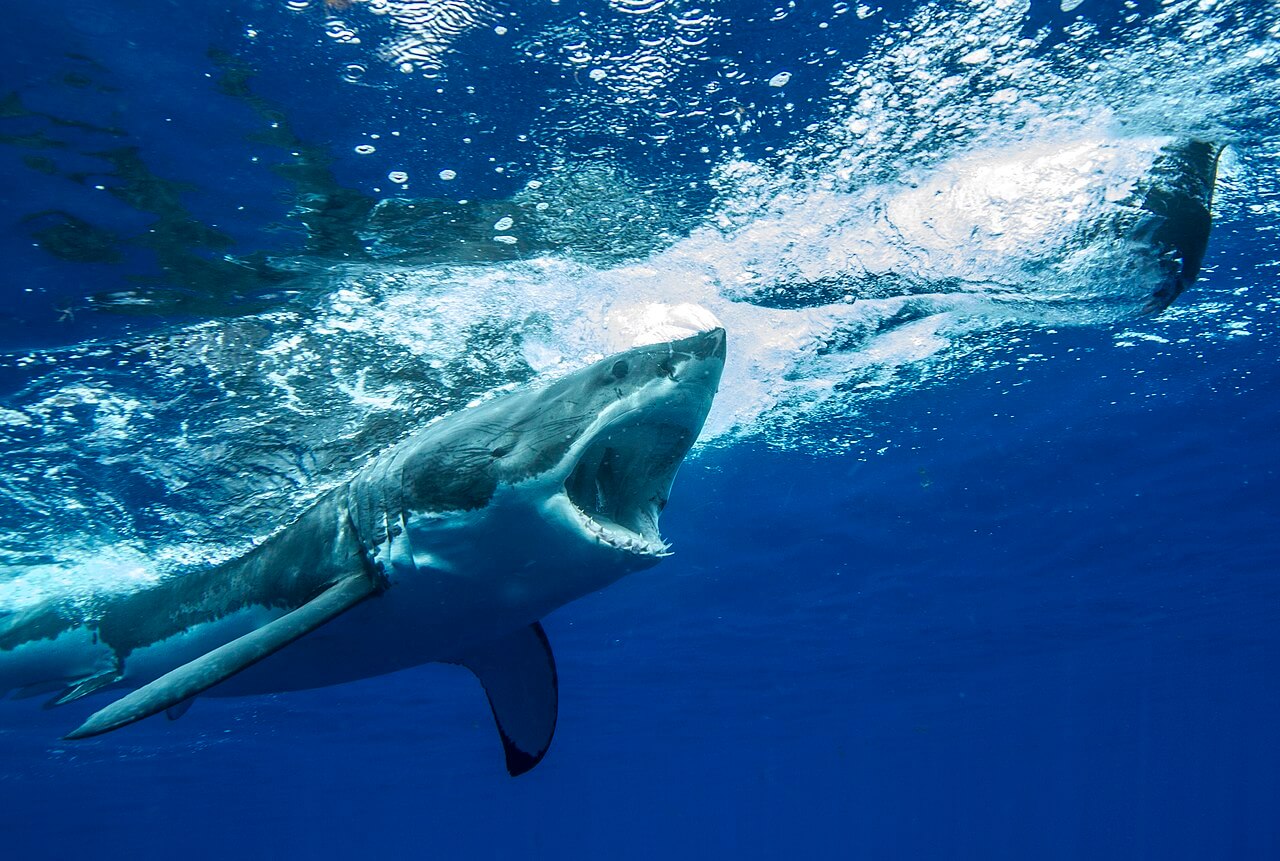Researchers witnessed a rare event in Mossel Bay, at the southern tip of the African continent: two great white sharks fatally attacking a humpback whale. A unique opportunity for these South African scientists to document this interaction between these two giants of the sea.
Given their size and their living environment, which complicate studies and observations, the great white shark and the humpback whale are still mysterious in many regards. What are the typical interactions between whales and sharks? Do the predators encountered by whales in their marine environment include sharks? It is difficult to answer these questions with certainty.
Some predation interactions are well documented. Killer whales, for example, frequently team up to attack small cetaceans and young minke whales, and there have been a number of reports of attacks on sperm whales or even an adult blue whale.
But as far as sharks are concerned, in the absence of observations, conclusions are based mostly on secondary evidence: stomach content of sharks, bite marks on cetaceans, etc. It is therefore accepted that whale carcasses are an integral part of the menu of many large sharks in the Atlantic, which obtain therein a fat-rich food source. But it is believed that great white sharks limit themselves to scavenging opportunities or preying on small or young cetaceans. The attack on an adult humpback witnessed by the Ocean Research Institute team is considered to be a rare event and one that provides a wealth of information.
The event takes place in February 2017 off the coast of South Africa. A humpback whale measuring approximately 7 m long is spotted. Isolated from its fellow humpbacks and tangled in fishing line, it appears to be unable to dive. Nevertheless, its blows remain powerful and regular. Then, two great whites measuring over 3.5 m arrive one after the other, the first one eventually being chased away by the second, larger individual. Over the course of the next 90 minutes, the whale would be bitten four times, causing it to bleed profusely before finally sinking; its carcass was spotted a few days later.
Even if its bite is the great white’s weapon of choice for killing its prey, in this particular instance it was used in an unconventional manner. “In the case described here, the two great white sharks acted separately and their bites were few in number and of short duration, with no part of the whale torn off during the bite,” write Sasha Dines and Enrico Gennari, authors of the scientific publication. Clearly, the sharks did not eat the whale’s flesh when they were biting it.
“[The two sharks] worked to ensure severe blood loss, targeting critical areas such as the base of the tail and the “armpit”, in an effort to weaken the whale and prevent it from escaping… which ultimately resulted in [its] drowning. This tactic, referred to as “bite and spit”, had previously only been described during predation on seals and sea lions. This strategy allows the great white to attack large prey while minimizing energy costs and risks. Never observed to date on prey this size, it seems to pay off.
The South African researchers point out that this type of predation remains exceptional, and probably occurred due to the critical state of the humpback, which had gotten itself entangled in a fishing net.
Pour en savoir plus
- Tucker, J. P., Vercoe, B., Santos, I. R., Dujmovic, M., and Butcher, P. A.(2019). Whale carcass scavenging by sharks.Global Ecology andConservation19, e00655





